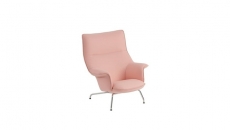Without warning last spring, millions of parents found themselves working from home while their kids attempted to do schoolwork under the same roof. The changes happened so quickly that families — especially those short on space — could only make the best of it with hastily arranged solutions.
Nearly six months later, many interior designers are helping clients make more considered decorating changes, big and small, to serve the whole family during the new school year.
Interior designer Everick Brown says a priority for his clients in the suburbs outside New York City has been finding enough quiet space and privacy to effectively work, study and take Zoom calls.
We all used to want a room with a view, says Brown. “Now everybody’s just searching for a room with a door.”
He’s also focusing on health and wellness: A portable standing desk can easily be moved from room to room so family members can share it when one needs a break from sitting.
There are also desktop risers that turn any desk or even the kitchen table into a standing desk for part of the day.
For families with younger kids, New Jersey-based interior designer Linda Kitson suggests finding a work table and chair scaled to a child’s size, just as elementary school would have. Properly sized seating lets kids sit with their feet on the floor, which may help them concentrate and stay on task.
If a low table and small chair aren’t available, try placing a stool or sturdy box under the table to create a solid resting place for little feet.
For adults, too, ergonomics matters: Be sure to use a desk or table and chair at the right height, so your feet can rest solidly on the floor and your back is supported.
Sometimes the answer is using a room in a completely new way.
Kitson has a client with two daughters who each had their own bedroom. They’ve now moved the two kids into one room — letting them choose a new paint colour together to make the space feel like it belongs to both of them — and put desks in the other bedroom to create a shared classroom.
It’s a temporary shift that can easily be undone if normal schooling resumes soon. In the meantime, it allows both girls to spend their school day in a space with plenty of natural light and a view out a window, rather than tucked away in a basement playroom.
And even if an entire room can’t be repurposed, there are ways to give each family member a workspace that serves them. It doesn’t have to be large: “48 inches wide by 24 inches deep is about all you need to accommodate notes and a pencil, and your laptop or iPad, and then a desk light,” Brown says. “What we’re really looking at is basically a 4-foot-by-4-foot space.”
Some families might find that working near one another, rather than in separate rooms, is better -- especially those with young kids who may need some assistance with technology during the day.
“A lot of times when kids are left to their own devices or in their own room, they get distracted really easily,” says New York-based interior designer Jenny Dina Kirschner. “So sometimes it is nice to have that communal working space.”
For one client in Brooklyn, Kirschner carved out an open workspace within a living room by placing a desk along the back of the sofa. With ample shelving and closed storage along the wall behind the desk, this section of the living room becomes a micro-office that blends with the decor of the rest of the room.
While kitchen tables can be practical workspaces, there can be a downside to this solution.
“When it becomes somebody’s command centre, then they need to pick up and move that stuff every day. And you’re sitting with somebody else’s work staring at you, and they might be thinking, ‘Oh, I need to go back to work after dinner,’” Kitson says.
Managing that work/life balance is just as important as managing space, she says. We don’t just need to work and study at home this year. We need to have fun, too.
New Jersey-based interior designer Terri Fiori says allowing a child to choose beautiful but calming colours for their bedroom can help create a workspace the student is excited about.
If your home has a window seat, she says, you can let kids spend part of the day studying there (or use it yourself). A view of the outdoors can help focus and boost everyone’s mood.
Kitson even helped one client create a mini-parkour, or obstacle course, that their two young boys can use for fun, physical breaks from their school day. For daily exercise, these brothers will skip to a doorway, jump up to ring a bell, then use a 2-by-4 installed in the hallway as a balance beam. Hopping off of it, they’ll crawl through nylon hoops, then climb over the back of a slip-covered sofa and crawl back to their school desks.
“They’ll have all the endorphins of exercise,” Kitson says, and hopefully return to their desks ready to focus on another hour of school, while their parents are working.





